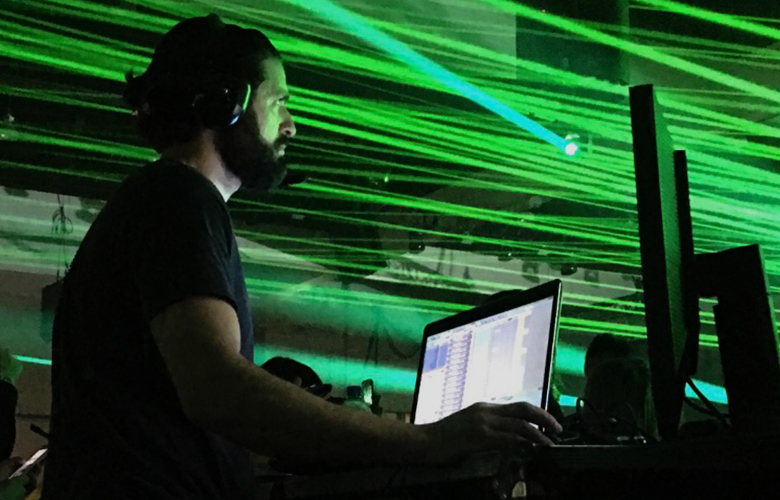
TheatreArtLife has connected with a number of Entertainment Riggers across the globe to bring you their stories, experience and advice on the very crucial roles and responsibilities Riggers hold in today’s industry. Jeremy Wetter stumbled into a rigging career through his interest in rock climbing and has ended up working for the likes of Lady Gaga and Cirque Du Soleil. This is his story.
When I was in High School I took an occupational placement test. I stated that I didn’t want to work in an office, I liked working with my hands, I didn’t mind strenuous work and that I enjoyed nature. It compiled all of this data and the results were… I would make an excellent logger. I was immediately depressed by these results, as my whole family would probably disown me because they were all college educated and strict environmentalists. The only things that I loved in High School had nothing to do with school at all aside for acting class which I seemed to have a knack for.
My real loves were music and rock climbing. I remember my family would always ask ‘What kind of job are you going to get as a rock climber?’ It was concerning to them that I had no interest other than to live out of the back of my 1979 Ford Ranger and rock climb. I moved down to Las Vegas during the summer before my senior year of High School. Despite what many people might see from the glowing lights in the center of the city, Las Vegas is surrounded by mountains, which makes it an outdoorsman’s paradise. There were so many world class climbers there that it became an ideal home for me. I convinced my parents to sign over legal guardianship to my 21 year old rock climbing coach and I finished out High School 15 minutes from Red Rocks, a climbing mecca. I struggled to find work and started dumpster diving behind a doughnut shop in the mornings and Trader Joe’s in the evenings.
I finally found work at a car wash but it wasn’t long until I started noticing that other rock climbers were turning towards work on the strip as riggers.
I didn’t know what rigging was but I knew that I was one of the best climbers in town and if they needed someone to climb I could do it better than just about anyone. I got my opportunity when the Union was desperate for riggers and asked if I had experience. I lied and said that I did. 30 minutes later I was rigging at the Colosseum at Caesars Palace. I ended up picking up a little work here and there but it wasn’t until people saw what I could do as a climber in the ballrooms that I really started working a lot.
The ballrooms all had a false ceiling that had ¼” to 1/2” all-thread that you had to climb hand over hand 25’ without a safety to access the high steel where you can rig from. This terrified most people and is now outlawed by OSHA in many places due to safety concerns but I immediately knew this was my shot to prove myself. I did this as well as the much easier arena rigging for many years before joining Cirque du Soleil’s show Mystere and then later the touring show Corteo. I learned how to use computer controlled automated rigging systems through Cirque du Soleil and later joined Showrig as an Automation programmer. I’ve been doing that now for almost 10 years.
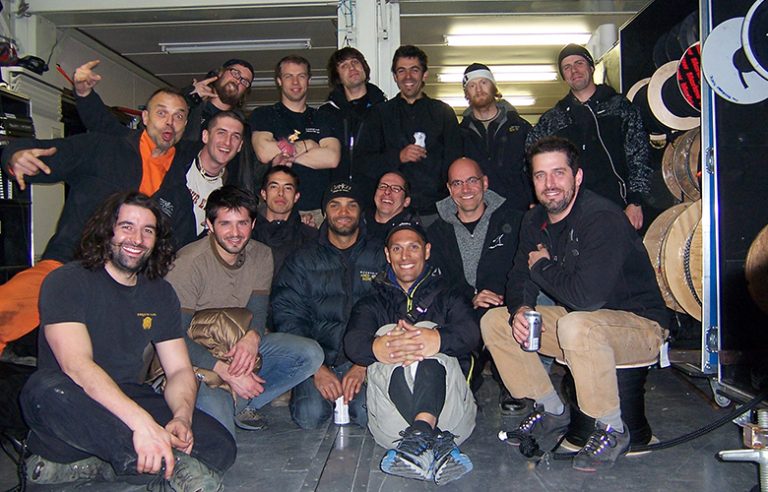
The industry of rigging is so vast that it is hard to be well rounded. There is arena rigging which is different than ballroom and convention rigging. Resident show riggers are not the same as touring show riggers and not all touring shows are the same. You may have rigged in an industrial setting but know nothing about rope access. The list goes on.
This is why it is hard to take one class or certification and say that you are a rigger. I’ve taken several rigging classes through the Union, a chain motor technician certification course, received the highest level certification for rope access, as well as an automation course. I have also received my wilderness first responder and tactical combat casualty care in case someone is hurt on the job, which does happen. All that being said I would say it is the years of experience in multiple areas of rigging that has prepared me the most as a rigger. Certifications mean very little unless you can actually do the job.
This is a bit like asking which of your children you love the most. I am proud to have been a part of the team that flew Lady Gaga at the Super Bowl a few years back but that is only because of it being very high profile not because of its difficulty. I am proud to have toured around the world for three years with Paul McCartney with 24 winches only because I had to do that one by myself and it took a lot out of me. The largest show that I have ever done though was a corporate show for the company Cisco that had 8 flying video walls that traveled, spun and went up and down throughout the arena. Along with this we had a flying piano and four violinists that we flew in the air.
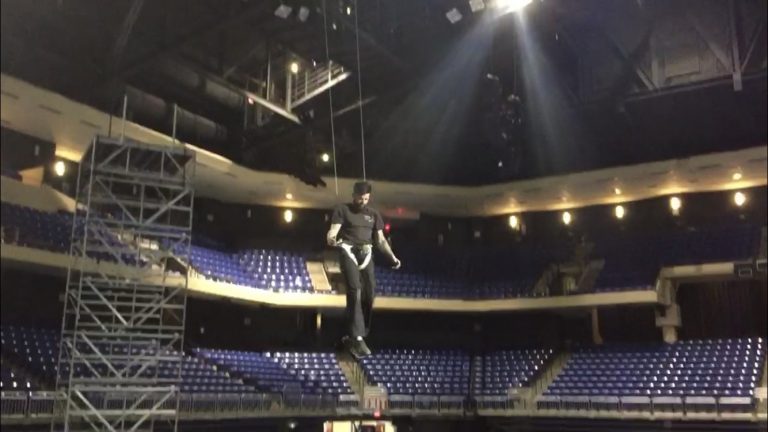
Not afraid of heights, humility, and a strong work ethic.
The first one is a bit obvious considering being at height is where most riggers spend a lot of their time. I have seen people panic at the thought of having to climb without a safety. You really have to keep your composure in a lot of stressful situations.
No matter how good you think you are there will always be someone that is better than you at some aspect of rigging.
Like I said it is hard to be an expert at everything in rigging. The more you specialize, the more likely you are to be a novice at another kind of rigging. If you are a jack of all trades you will eventually be schooled by a specialist. There is no way around it, so be humble or you will be humbled.

I would say that having a strong work ethic has been my calling card and has allowed me to reach many of my goals in my career. It is very common to have to work crazy hours and to give everything your body can give. My longest shift was 42 hours of pulling 1 and 2 ton motors in an arena. I got 8 hours off to sleep in my car and then went back to work for another 18 hour shift. If you’re not willing to put in those hours you will likely be passed up for someone that is.
Don’t let anyone outwork you and keep striving to get better.
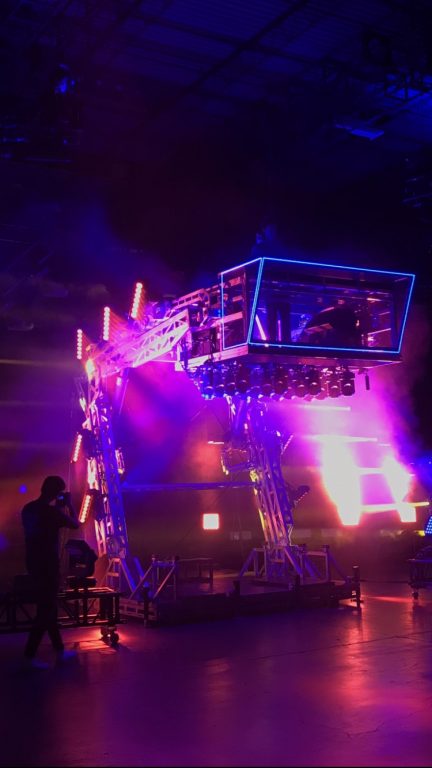
These days I am setting up automation systems for various tours or corporate events. I am doing everything usually which means I am unloading the truck, running feeder, setting up my racks, running cable, assembling automated rigging systems, programming the system, and working with the various stage hands and departments that might rely on me to get it done. No job is ever the same and that is what I love about my job. The best part is trying to figure out how to get it all done when all you are given is the parts and a plot.
I’ve had various people that have taught me different things over the years but there was never one person that really took me under their wing. To credit one person would be a disservice to the others. I was given many opportunities over the years and for that I am grateful.
I have recently taken on the role of being a mentor to some of the younger less experienced people in the Showrig shop. It has become my next challenge in ushering in the next generation into this business. It’s nice to show them the way I learned to be successful but it is only an opportunity. What they do with that opportunity, is up to them.
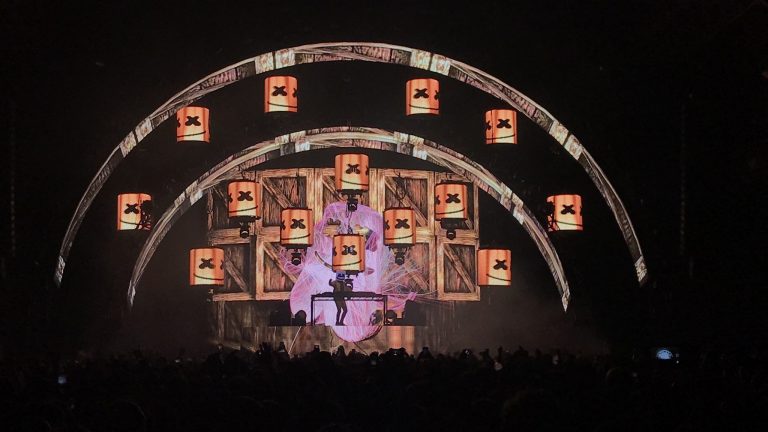
I have taken full advantage of the opportunities to travel the world with various tours I’ve been a part of. Often times I will ask them to book my ticket back home for several months later so that I can backpack around whatever country I am in.
I have photographs from all over the world and more stories than I can usually remember.
I’ve had a few gallery shows where I can put my photographs on display. I also enjoy playing the guitar and writing on occasion. I still take every opportunity I can to get up to the mountains and climb around but these days it is usually just to clear my head before taking on the next job.
Inside The Lives Of Entertainment Riggers: Tora La Rosa
Inside The Lives Of Entertainment Riggers: James Busby


Anna Robb is Co-Founder and Managing Director for TheatreArtLife. Anna is an experienced Producer/Production Stage Manager. Her 20-year work history spans Asia Pacific, the Americas, Africa, the Middle East and Europe. She has worked for companies such as Cirque du Soleil, Franco Dragone Entertainment Group, Christie Digital Systems and The Sydney Opera House. Anna was an integral part of the research and development, training and formation, creation and operation of the 250 million dollar aquatic show, The House of Dancing Water in Macau. She also maintained the daily operations of this complex show as the head of Stage Management for 7 years. Anna has been employed on over 70 shows in the areas of concerts, arena events, corporate events, trade shows, musical theatre, plays, dance, circus, outdoor festivals and mega shows. Anna holds a honours degree in Design for Theatre and Television and is passionate about the evolution of the industry.
Read Full Profile© 2021 TheatreArtLife. All rights reserved.

Thank you so much for reading, but you have now reached your free article limit for this month.
Our contributors are currently writing more articles for you to enjoy.
To keep reading, all you have to do is become a subscriber and then you can read unlimited articles anytime.
Your investment will help us continue to ignite connections across the globe in live entertainment and build this community for industry professionals.